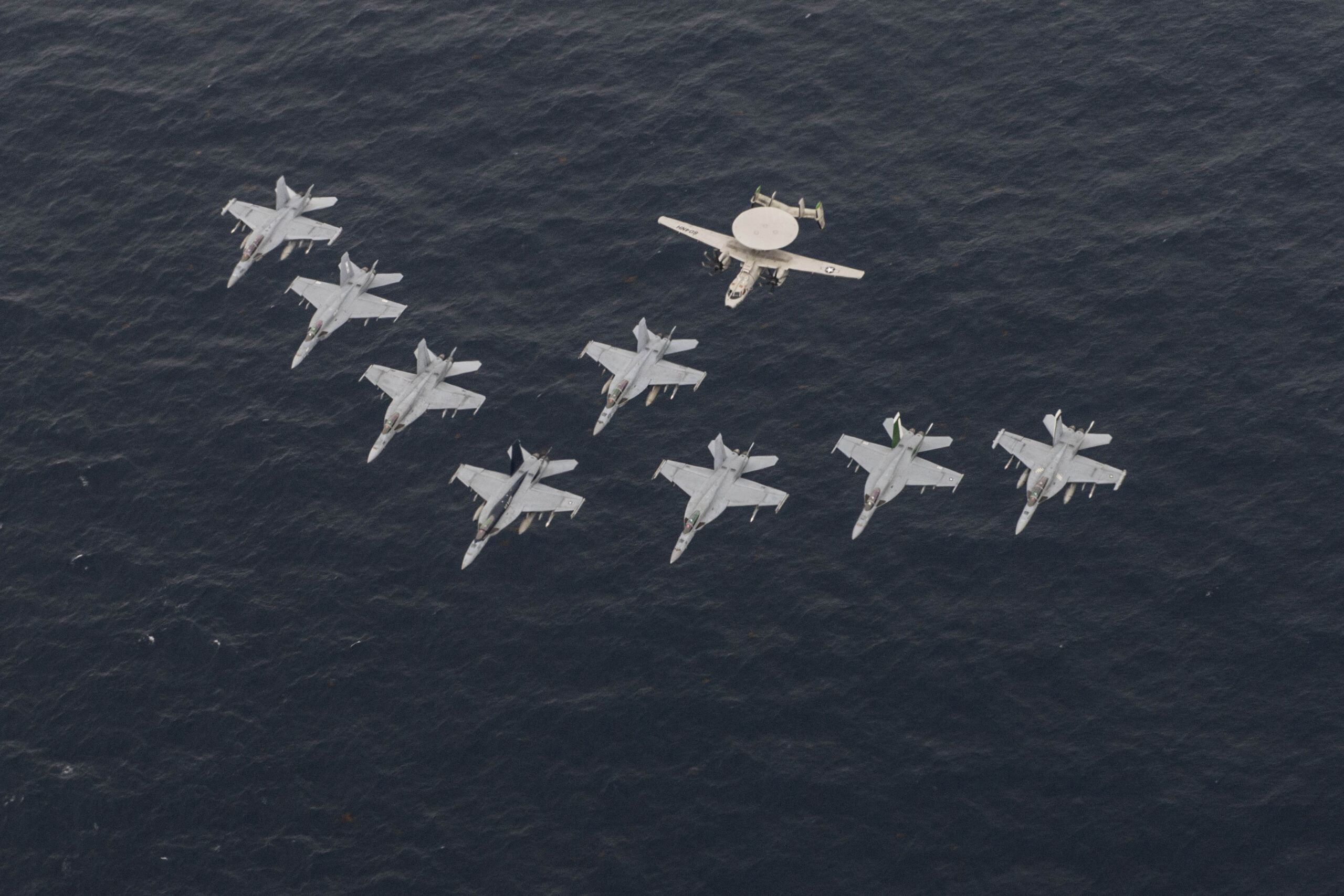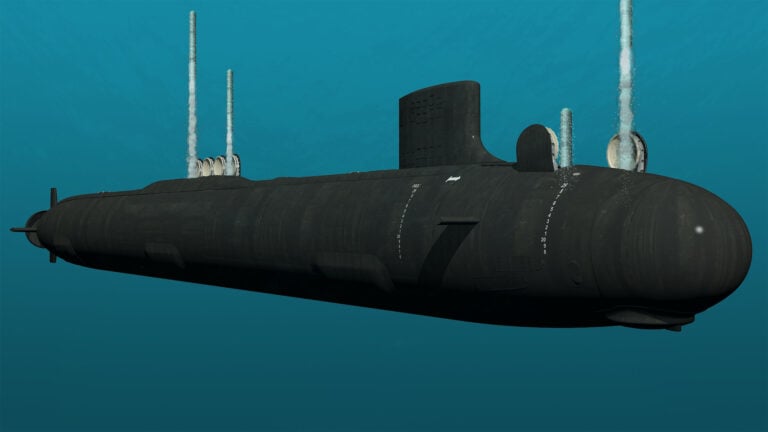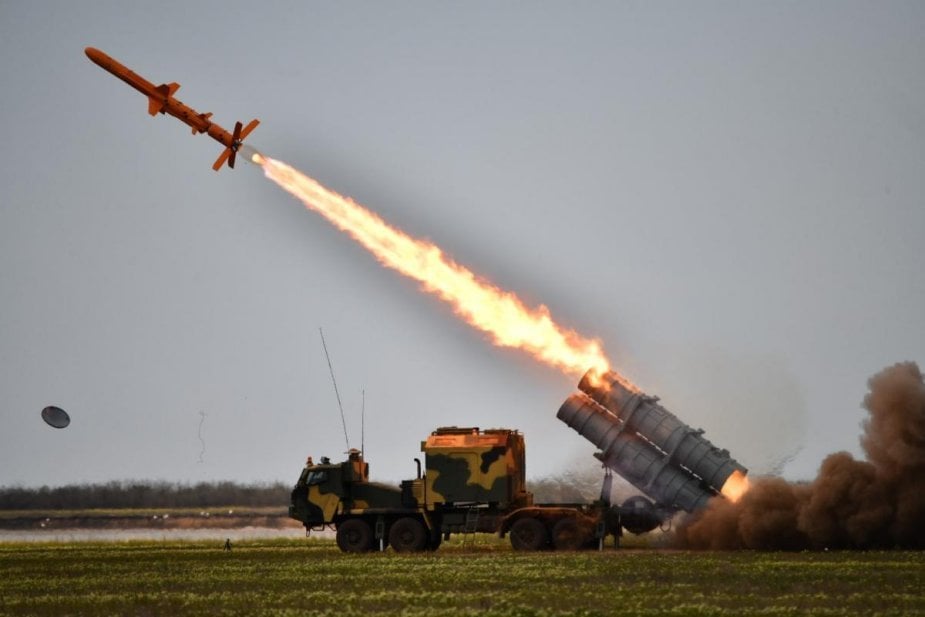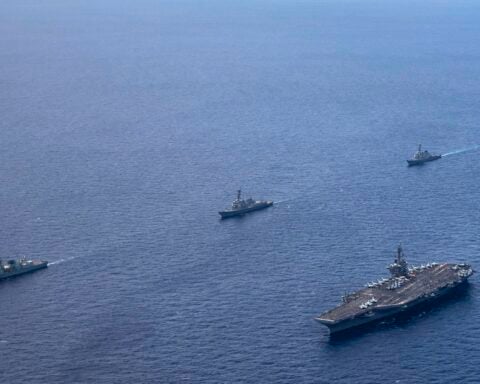
The U.S., Japan and South Korea announced on Sunday that they will conduct the first iteration of a trilateral multidomain exercise called Freedom Edge this summer following a trilateral ministerial meeting between the defense chiefs of the three countries in Singapore.The United States-Japan-Republic of Korea Trilateral Ministerial Meeting (TMM) convened by U.S. Secretary of Defense Lloyd J. Austin III, Japan Minister of Defense Minoru Kihara Minoru, and South Korea Minister of National Defense Shin Won-sik was held on the sidelines of the International Institute of Strategic Studies Shangri-La Dialogue 2024 where the three defense chiefs discussed shared regional security concerns, reviewed the implementation of trilateral security cooperation lines of effort presented at the Aug. 18 2023 Camp David Summit, discussed new initiatives to strengthen and institutionalize trilateral security cooperation to contribute to peace and stability on the Korean Peninsula, in the Indo-Pacific region, and beyond according to a joint statement by the three countries.
The statement also announced the intention to conduct exercise Freedom Edge, “The Secretary and the Ministers decided to execute the first iteration of the new, multi-domain trilateral exercise, FREEDOM EDGE, this summer. They reaffirmed that trilateral exercises will be executed in a systematic manner in accordance with the multi-year trilateral exercise plan, which was established last year following the August 2023 Camp David Summit,” reads the release which did not state the location of the exercise.
The release also stated that the three defense chiefs decided to conduct a trilateral tabletop exercise to discuss how to effectively deter and respond, based on various threats on the Korean Peninsula and in the Indo-Pacific region.
The three defense chiefs reaffirmed commitments such as strengthenng trilateral security cooperation to deter nuclear and missile threats posed by North Korea and to achieve the complete denuclearization of the DPRK in accordance with relevant United Nations Security Council resolutions (UNSCRs), to achieve the complete denuclearization of the DPRK.
North Korea was condemned by the three defense chiefs for recent diversification of nuclear delivery systems, tests and launches of multiple ballistic missiles, the launches of what the DPRK purports to be a military reconnaissance satellite using ballistic missile technology, illicit ship-to-ship transfers, and arms shipments with Russia as clear violations of multiple UNSCRs.
The three chiefs also recognized that Russia’s actions against Ukraine are a serious violation of the principles of territorial integrity and sovereignty that undermine the fabric of the international order. The three chiefs, according to the statement, recalled their respective positions regarding the dangerous and aggressive behavior by the People’s Republic of China (PRC) supporting unlawful maritime claims that they have recently witnessed in the South China Sea. “They shared concerns about actions that are inconsistent with international law as reflected in the United Nations Convention on the Law of the Sea (UNCLOS). They stressed the importance of fully respecting international law including the freedom of navigation and overflight,” reads the statement.
Earlier on Thursday, North Korea conducted a “Power Demonstration Firing” of 600mm super-large Multiple Rocket Launcher System (MRLs) overseen by North Korean leader Kim Jong Un in response to South Korea’s May 27 air drill which was carried out in response to North Korea’s notification of its intention to launch a military reconnaissance satellite.
The Republic of Korea Air Force (ROKAF) staged the drill in the central region south of a no-fly zone along the border of the two Koreas, 20 ROKAF fighter aircraft comprising of F-35A Lightning IIs, F-15K Slam Eagles and F-16 Fighting Falcons carried out the drill.
“This attack squadron training was conducted to demonstrate the resolve and capabilities to punish immediately, strongly and until the end if the enemy undertakes a provocation”, said South Korea’s Joint Chiefs of Staff (JCS) in a release on the drill. North Korea subsequently conducted a failed launch that night which resulted in the rocket carrying the satellite exploding shortly after lift-off.
On May 28, Kim denounced the South Korean air drill in a speech at the Academy of Defence Sciences, “We cannot help being enraged by such intolerable sabre-rattling, a blatant violation of our national sovereignty,”, said the North Korean leader who added that North Korea should resolutely react with absolutely overwhelming actions in a clear exercising of its right to self-defence, according to a report by North Korea state media Korean Central News Agency (KCNA)
KCNA reported that during Thursday’s firing, Kim said the firing showed what consequences North Korea’s rivals will face if they provoked North Korea. KCNA reported that the 3rd Battalion of the 331st Red Flag Artillery Regiment carried out the salvo firing by operating the integrated fire-control system, a constituent of North Korea’s combined nuclear weapons management system and that the rockets successfully hit an island target 225 miles away.
The state agency did not state the weapon system used or the number of rockets fired, but images released by KCNA showed both the wheeled four tube and tracked six tube launchers for the KN-25 tactical ballistic missile along with a salvo firing of 18 missiles.
North Korea’s firings also occurred the same day U.S. Indo-Pacific Command commander Adm. Samuel Paparo was in the midst of an official visit to South Korea where he met with senior South Korean officials, including President Yoon Suk Yeol, Minister of National Defense Shin Won-sik, Minister for Foreign Affairs Cho Tae-yul, and Chairman to the Joint Chiefs of Staff Adm. Kim Myung-soo, to discuss the security environment in the IndoPacific region and underscore USINDOPACOM’s resolute commitment to the defense and security of the ROK according to the command’s release.
“Paparo reiterated the U.S.’s commitments to a strong defense relationship with the ROK armed forces, to extended deterrence, and to trilateral cooperation between the ROK, Japan, and the U.S. to enhance interoperability between their respective forces, including defense against illegal missile launches by the Democratic People’s Republic of Korea,”, read the release.





